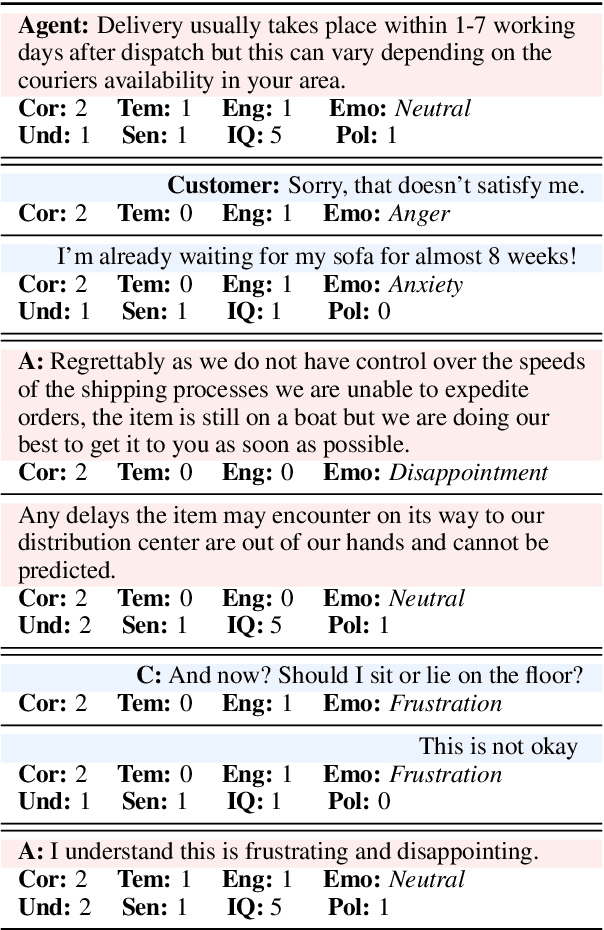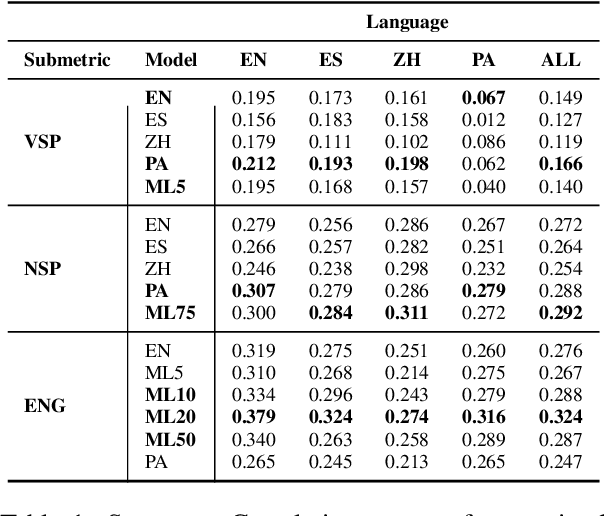João Paulo Carvalho
Dialogue Quality and Emotion Annotations for Customer Support Conversations
Nov 23, 2023



Abstract:Task-oriented conversational datasets often lack topic variability and linguistic diversity. However, with the advent of Large Language Models (LLMs) pretrained on extensive, multilingual and diverse text data, these limitations seem overcome. Nevertheless, their generalisability to different languages and domains in dialogue applications remains uncertain without benchmarking datasets. This paper presents a holistic annotation approach for emotion and conversational quality in the context of bilingual customer support conversations. By performing annotations that take into consideration the complete instances that compose a conversation, one can form a broader perspective of the dialogue as a whole. Furthermore, it provides a unique and valuable resource for the development of text classification models. To this end, we present benchmarks for Emotion Recognition and Dialogue Quality Estimation and show that further research is needed to leverage these models in a production setting.
Simple LLM Prompting is State-of-the-Art for Robust and Multilingual Dialogue Evaluation
Sep 08, 2023



Abstract:Despite significant research effort in the development of automatic dialogue evaluation metrics, little thought is given to evaluating dialogues other than in English. At the same time, ensuring metrics are invariant to semantically similar responses is also an overlooked topic. In order to achieve the desired properties of robustness and multilinguality for dialogue evaluation metrics, we propose a novel framework that takes advantage of the strengths of current evaluation models with the newly-established paradigm of prompting Large Language Models (LLMs). Empirical results show our framework achieves state of the art results in terms of mean Spearman correlation scores across several benchmarks and ranks first place on both the Robust and Multilingual tasks of the DSTC11 Track 4 "Automatic Evaluation Metrics for Open-Domain Dialogue Systems", proving the evaluation capabilities of prompted LLMs.
 Add to Chrome
Add to Chrome Add to Firefox
Add to Firefox Add to Edge
Add to Edge